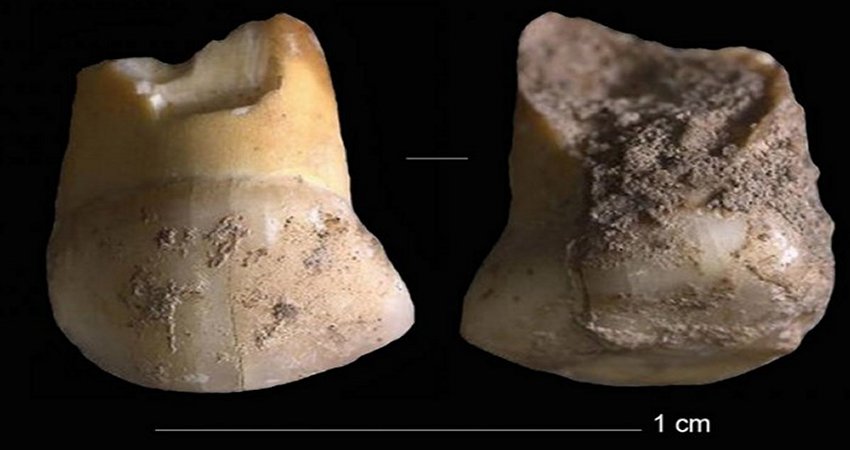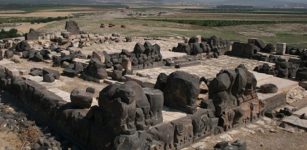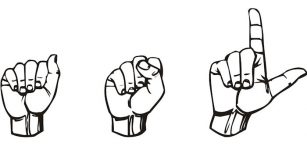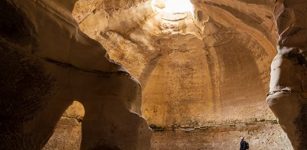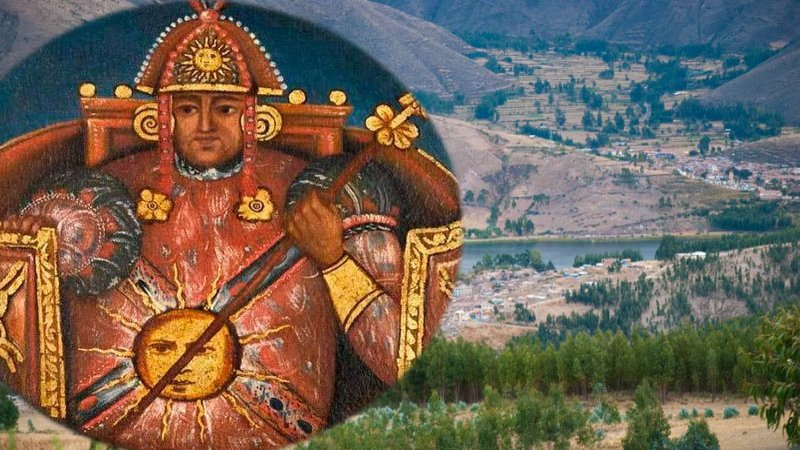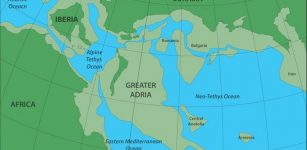Newspaper Rock Art: Ancient Indian Petroglyphs That Tell 2,000-Year-Old Story Of Utah
MessageToEagle.com – Newspaper Rock is one of the finest and largest collections of Indian rock art to be found anywhere in the U.S.
This fascinating petroglyph panel is located in San Juan County, Utah, along Utah State Route 211, 28 miles (45 km) northwest of Monticello and 53 miles (85 km) south of Moab.
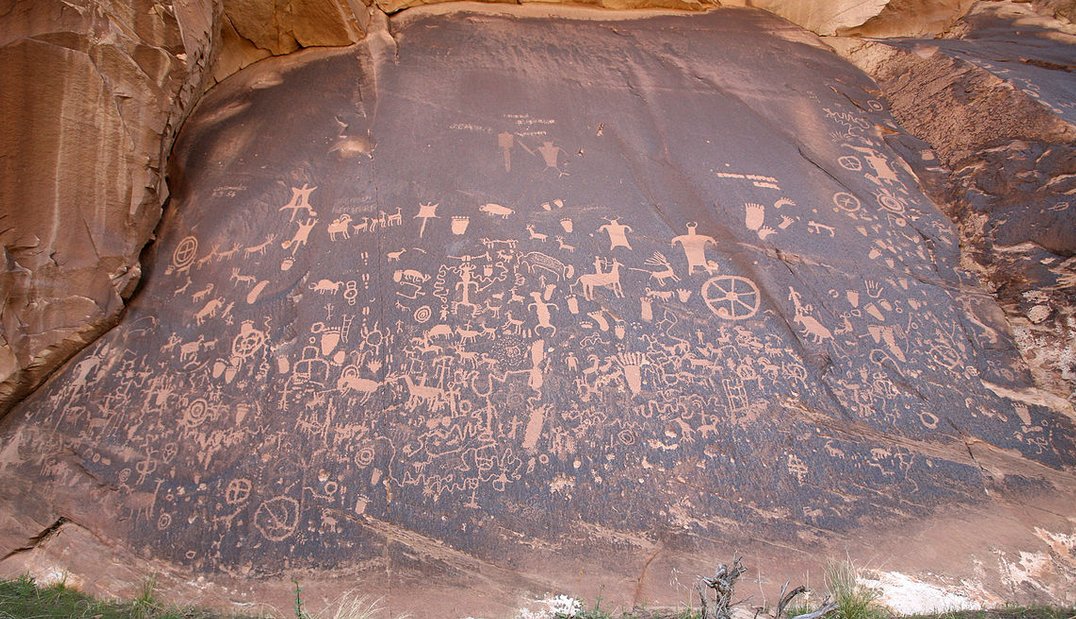
Newspaper Rock represents written in sandstone records of more than 2,000 years of history of people who lived in the area.
Carved into the desert varnish, there are undeciphered symbols, abstract forms, patterns and figures; there are more than 650 rock art designs, of which many may have historical or astronomical meaning.
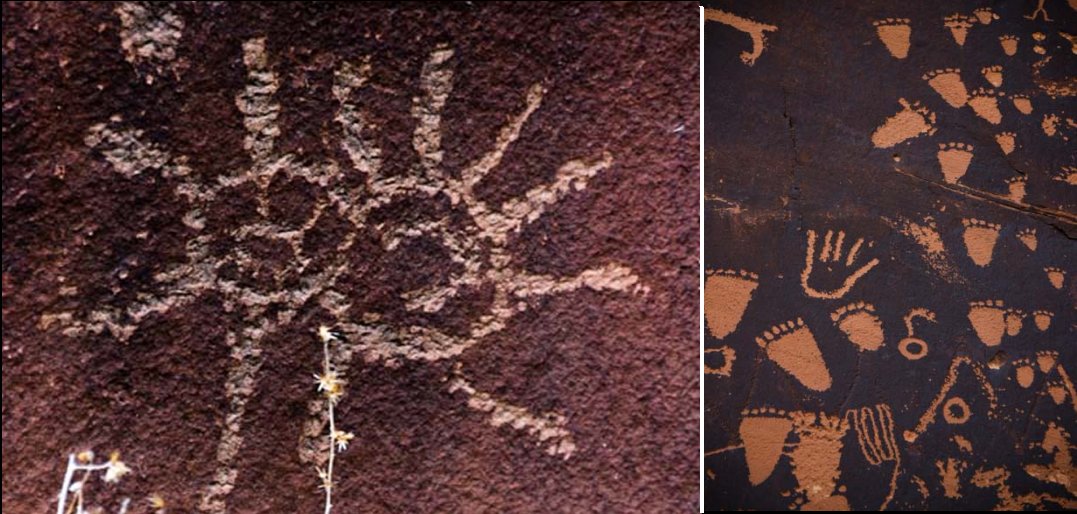
It is also unclear why there is such a large concentration of petroglyphs in this particular area.
See also:
Petroglyphs At The Winnemucca Lake: North America’s Oldest Known
Lyman Lake Petroglyphs Left By Ancestors Of The Hopi Indians
Mythical Creatures And Celestial Beings Depicted In North America’s Oldest Rock Art
The petroglyphs have a meaning, which more or less remains an ancient mystery.
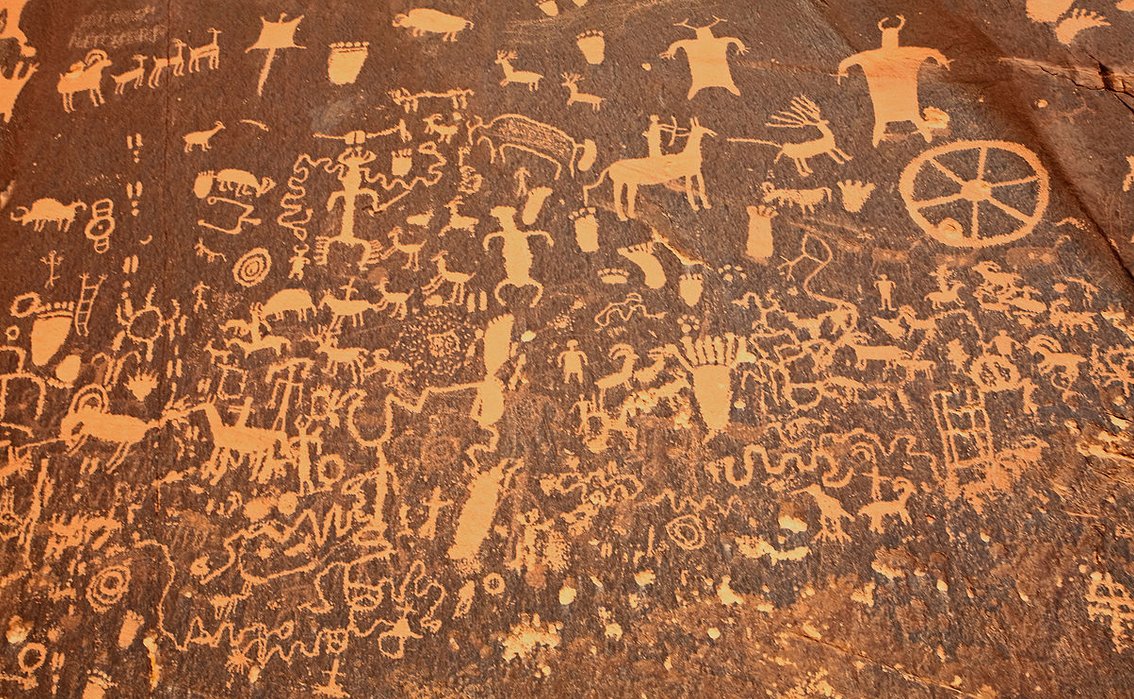
Even so, petroglyphs that in a way, remind us of a newspaper, provide an important historical source of information on events and experiences of ancient people in the valley.
The first carvings at the Newspaper Rock site were made around 2,000 years ago. In Navajo, this rock is called “Tse’ Hone'” (‘the rock that tells a story’). It is probably the story of people from the Archaic, Anasazi, Fremont, Navajo, Anglo, and Pueblo cultures, who lived in Puerco River Valley from 650-2,000 years ago.
MessageToEagle.com
Expand for references

